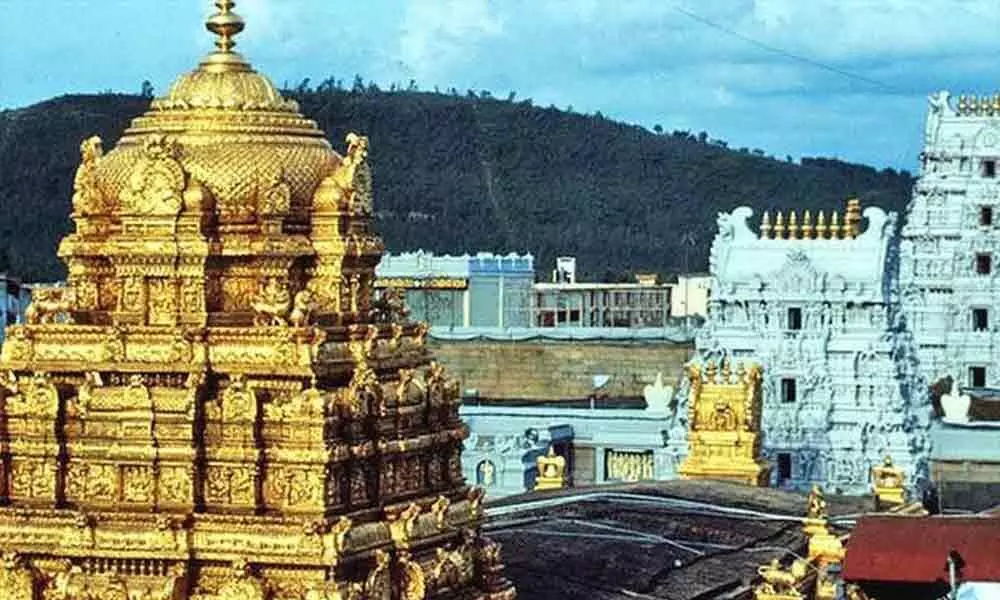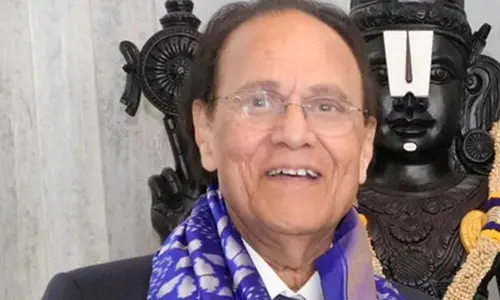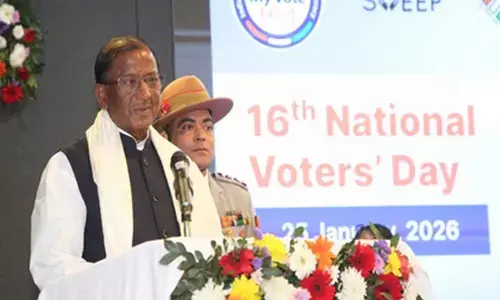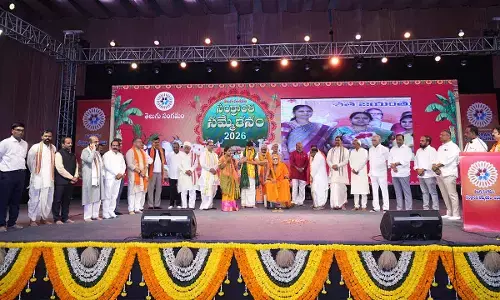Needless controversy

Tirumala Tirupati Devasthanam
The ongoing Brahmotsavam celebrations at Tirumala is intended to teach us the way to divine self-realisation
The ongoing Brahmotsavam celebrations at Tirumala is intended to teach us the way to divine self-realisation. But unfortunately, this time it is getting embroiled in avoidable controversies.
Normally when some controversy arises on sensitive issues, the political executive is expected to take instant measures to douse the fire but in Andhra Pradesh, that is not happening. Ministers who should try and mollify the feelings of the people have been stoking fire.
Any government should first try to see that the law makers take up the responsibility to play a balancing act. But in AP no such thing is happening. Instead it is assuming political overtones.
Declaration by non-Hindus before entering Tirumala temple is not a new practice. It was introduced by the British in 1821. It is known as Bruce's Code. The details available in Google say, Bruce Code is a set of rules for the management and administration of temples of Tirumala and Tirupati was enacted by East India company in 1821.
These are well-defined rules formulated as a code having 42 provisions to ease the administration of temples of Tirumala and Tirupati on the basis of customs and previous usages without interfering in the day-to-day affairs.
After the fall of Hindu empires by 18th century AD, the temples of Tirumala and Tirupati came under the Muslim rulers during the 18th century. With the arrival of British, management of temples were transferred from Nawabs of Arcot to East India Company in 1801 AD.
Following the death of Nawab Chand Sahib the then Nawab of Arcot, British installed Muhammad Ali Khan Wallajah as Nawab of Arcot. Chand Sahib ran into debts to British and assigned revenues of the temples to the East India Company. By 1801, the Nawab was dispossessed and Arcot was annexed into their domain and British assumed direct administration of the Tirupati temples for the sake of income of the temple.
In 1803, the then Collector of Chittoor sent a report to the board of revenues showing the full account of the institution, together with schedules, pujas, expenses, and extent of lands etc., known as "Statton's Report" on the Tirupati.
Between 1805-16, due to many instances and complaints about misappropriation and mismanagement of temple funds, the East India Company passed the Regulation VII of 1817 to check the abuses. Through the regulation provided, the duty of the board was only "general superintendence and not detailed management," the Board interfered in almost all aspects of the administration of the Tirumala and Tirupati temple.
It was then that Bruce, the then Commissioner of the Chittoor district formulated a Code containing 42 provisions, known as "Bruce's Code" for the guidance of the Tirumala temple administration. The "Court of Directors" in England strongly resented the participation of the Company's officers and men in the idolatry conducted in Hindu temples and ordered its relinquishment of their administration of religious endowments. It came into effect in 1842-43.
One of the 42 provisions one was that any non-Hindu should sign a declaration before entering the temple. One might argue that how can anyone identify any non-Hindu entering the temple since most of them would have Hindu names though they belong to other religion.
Agreed, in that case the Government should repeal that rule and put an end to the controversy. God has no religion and hence any one can pray to anyone. Similarly, it can even (in consultation with all religious heads and Jeeyar Swamis) do away with the practice of Chief Minister offering silk robes to the Lord.
This was a recent practice was started by N T Rama Rao in 1983. Prior to that Endowment Commissioner used to offer the robes. Instead of finding solutions, all parties ruling and opposition are indulging in the game of one upmanship and using it for political purposes.














